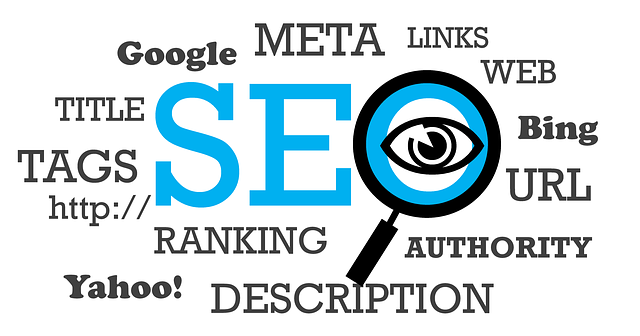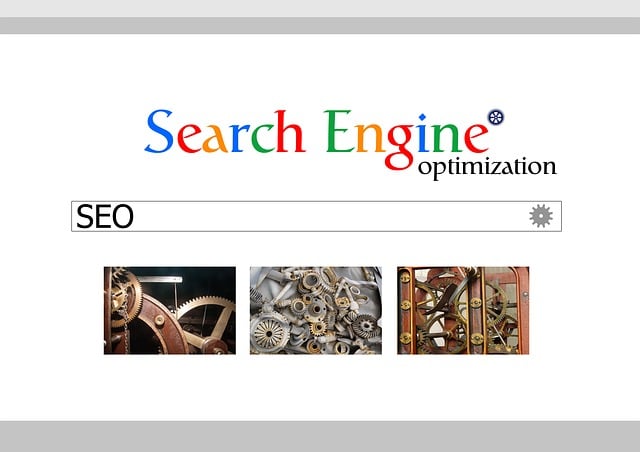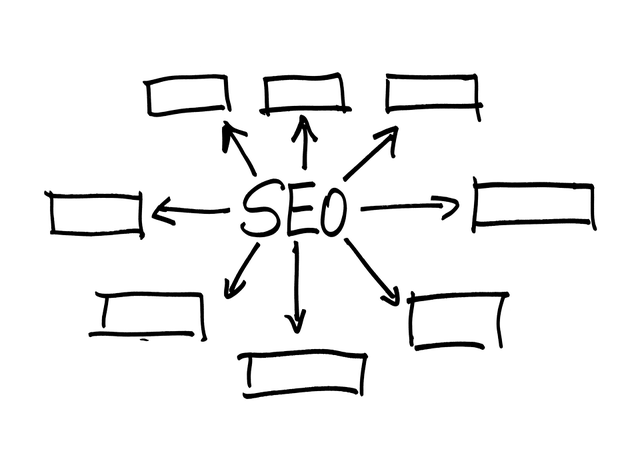TL;DR:
Keyword optimization is a core SEO strategy that enhances online visibility by aligning content with user search intent and search engine algorithms. This involves:
1. Identifying Relevant Keywords: Use tools like Google Keyword Planner, SEMrush, or Ahrefs to uncover high-volume, low-competition keywords (long-tail keywords) for better targeting and higher conversion rates.
2. Strategic Keyword Placement: Naturally integrate primary keywords (up to 3% density) into titles, headings, meta descriptions, and body text for improved rankings without compromising readability.
3. Optimize Title Tags & Meta Descriptions: Craft compelling tags (under 60 chars) and descriptions (150-160 chars) with relevant keywords to boost click-through rates and search rankings.
4. Build High-Quality Backlinks: Collaborate within your industry for genuine backlinks from authoritative sites, enhancing domain authority and visibility.
5. Continuous Monitoring & Refinement: Track keyword performance, user behavior, and trends using SEO tools to adapt content strategies and stay ahead of algorithm updates.
“Unleash your website’s potential with powerful keyword optimization strategies – the key to climbing search engine rankings. This comprehensive guide offers invaluable SEO tips for aspiring digital marketers. From understanding the fundamentals of keyword optimization as a cornerstone of SEO to identifying target audience keywords, on-page content integration, and leveraging meta tags, every aspect is meticulously covered. Discover effective ways to analyze competitors, build backlinks, and continually refine your approach for sustained success in today’s competitive online landscape.”
Understanding Keyword Optimization: The Cornerstone of SEO

Keyword optimization is a fundamental aspect of Search Engine Optimization (SEO) that involves strategically placing relevant keywords and phrases in your online content to improve search engine rankings. It’s a process that goes beyond simply selecting popular search terms; it entails thorough research, analysis, and an understanding of both user intent and the intricacies of search algorithms. By integrating SEO tips for ranking higher, such as keyword density, placement, and context, into your digital marketing strategy, you can make your website more visible to potential users.
Effective keyword optimization starts with identifying the right keywords that accurately represent your content and target audience. This involves using tools to analyze search trends, assess competition, and understand user behavior. Once identified, these keywords should be woven naturally into your text, titles, headings, and meta descriptions, ensuring a seamless reading experience for users while also signaling to search engines the relevance of your content.
Identifying Relevant Keywords for Your Target Audience

When it comes to SEO tips for ranking higher, identifying relevant keywords is a crucial first step. You need to understand what your target audience is searching for. Tools like Google Keyword Planner, SEMrush, or Ahrefs can help uncover search terms that align with your business and have sufficient search volume. Start by brainstorming a list of words and phrases your ideal customer might use when looking for products or services similar to yours. Then, analyze the competition by checking which keywords their content ranks for. This process will give you insights into the types of keywords that can drive targeted traffic to your site.
Focus on long-tail keywords, which are more specific and often have less competition. These phrases tend to reflect actual search intent better, increasing the chances of ranking higher and attracting high-quality leads. For example, instead of targeting a broad term like “shoes,” consider something more niche like “best running shoes for flat feet.” This approach not only helps in keyword optimization for rankings but also ensures that your content is relevant and valuable to your audience.
Incorporating Keywords into On-Page Content Effectively

When optimizing your on-page content, the strategic placement of relevant keywords is key to improving your search engine rankings. Start by conducting thorough keyword research to identify terms and phrases that accurately describe your content while having significant search volume. Once identified, seamlessly integrate these keywords into your titles, headings, meta descriptions, and throughout the body text, ensuring a natural flow that enhances user experience rather than appearing forced.
Effective SEO tips for ranking higher involve using keywords in a contextually meaningful way. This means incorporating them within the first 100 words of your content, as this has been shown to capture the attention of search engines and convey relevance. Additionally, use variations of your primary keyword to provide diversity in your content without sacrificing optimization. Remember, balancing keyword density with high-quality, unique content remains paramount for long-term SEO success.
Optimizing Title Tags and Meta Descriptions for Maximum Impact

Optimizing your title tags and meta descriptions is a powerful SEO tip for ranking higher. These elements are often overlooked, yet they significantly influence how search engines perceive and display your content. A well-crafted title tag should be compelling, include relevant keywords, and accurately reflect the content of the page while keeping it under 60 characters to avoid truncation. On the other hand, meta descriptions provide a concise summary of your web page’s content, encouraging users to click through from the search results. Aim for around 150-160 characters, incorporating keywords naturally, and focusing on delivering value to increase click-through rates.
Search engines like Google use these elements to understand the context and quality of your pages, which can directly impact your rankings. By keeping them optimized with strategic keyword usage, you enhance the visibility of your content and attract more organic traffic. Remember, while these are not direct ranking factors, their impact on click-through rates and user engagement signals to search engines that your page is valuable, increasing the likelihood of improved search rankings over time.
Leveraging Keyword Research Tools for Accurate Insights

Leveraging Keyword Research Tools is an indispensable step in optimizing your content for search engine rankings. These tools provide valuable insights into user search behavior, helping you understand which keywords are most relevant to your audience and how they’re searching for information related to your niche. By utilizing advanced algorithms and vast data sets, these tools can identify long-tail keywords, uncover hidden search trends, and even predict future keyword performance. Incorporating this data into your SEO strategy allows for crafting content that resonates with your target demographic and aligns with their search intent, ultimately enhancing your website’s visibility and boosting its position in search engine results pages (SERPs).
For effective SEO tips for ranking higher, Keyword Research Tools offer actionable recommendations based on your analysis. They guide you on choosing the right keywords, from high-volume to low-competition terms, ensuring a balance between search popularity and ease of rankability. These tools also assist in identifying content gaps within your site, suggesting topics that could be optimized to attract more organic traffic. By staying ahead of search engine algorithm updates and adapting to evolving user preferences through regular keyword research, you can keep your content relevant, engaging, and aligned with the latest SEO trends.
Building Quality Backlinks to Enhance Search Engine Visibility

Building quality backlinks is one of the most effective SEO tips for ranking higher on search engines. When high-authority websites link to yours, it signals to Google that your content is valuable and trustworthy. This can significantly boost your website’s domain authority and search engine visibility. Focus on acquiring links from reputable sources within your industry or niche; this could include guest blogging on influential blogs, securing media mentions, or creating shareable content that naturally draws in backlinks.
Engaging with other websites in a genuine and meaningful way fosters collaborative relationships and increases the likelihood of earning these valuable backlinks. Remember, quality always trumps quantity when it comes to backlinks. A few high-quality links from respected domains carry more weight than numerous low-quality or spammy ones. By implementing these SEO tips for ranking higher, you can enhance your site’s search engine visibility and attract a larger audience.
Analyzing Competitors' Strategies for Keyword Dominance

To gain a competitive edge in the digital landscape, understanding your competitors’ keyword strategies is an invaluable SEO tip for ranking higher. Start by identifying the top-performing keywords in your industry using tools like Google Keyword Planner or SEMrush. Then, analyze your rivals’ content to uncover their target keywords and the phrases they’ve successfully ranked for. This involves examining their website copy, blog posts, meta tags, and backlink profiles. By doing so, you can identify gaps in their content strategy and discover new opportunities to target underserved keywords that align with your brand’s expertise.
Leveraging competitor analysis allows you to refine your own keyword optimization approach. Focus on integrating relevant, high-volume keywords naturally into your website’s content while ensuring it remains engaging and valuable for your audience. Additionally, keep an eye on emerging trends and long-tail keywords that competitors might be overlooking. This proactive strategy enables you to stay ahead of the curve and capitalize on less competitive but highly relevant search terms, ultimately enhancing your online visibility and driving more qualified traffic to your site.
Continuous Monitoring and Refinement for Optimal Rankings

Continuous monitoring is an essential part of the SEO journey, as search algorithms evolve and user preferences shift. To stay ahead in the rankings, it’s crucial to regularly check your website’s performance against relevant keywords. Utilize SEO tools that provide insights into click-through rates, keyword positions, and user behavior. By analyzing this data, you can identify areas for improvement and make data-driven adjustments to your content strategy.
Refining your approach involves a constant process of testing and tweaking. Experiment with different title tags, meta descriptions, and content formats to see what resonates best with both search engines and your target audience. Remember, SEO Tips for Ranking Higher are not one-size-fits-all; they require adaptability and a deep understanding of your niche. Keep refining your strategy, and you’ll be well on your way to securing higher rankings over time.
